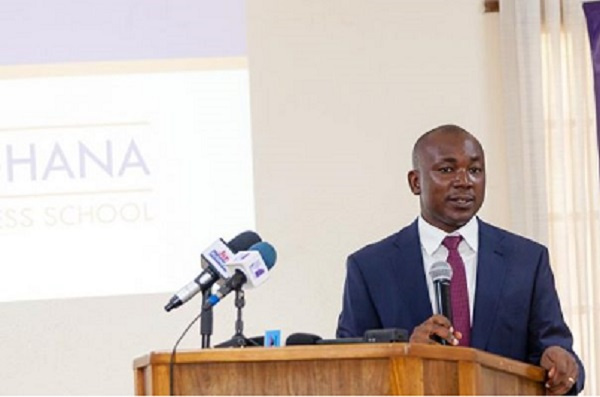The losses that some banks in Ghana experienced in 2022 would have gone up above 80 percent if they had signed onto the original Domestic Debt Exchange Programme that was announced by the Finance Minister on December 5th last year, a professor at the University of Ghana Business School, Godfred Bokpin has said.
Records show that major banks in Ghana posted losses in 2022. The county’s move to restructure its local currency and overseas debt resulted in the first loss on record for two of the West African nation’s top banks.
GCB Bank Plc, the country’s largest lender by assets, posted a 593.4 million cedis ($50.5 million) net loss for the year to end December, its first since 1993 when Bloomberg started maintaining data.
Standard Chartered Bank Ghana Ltd., the biggest by market value, reported a loss of 297.8 million cedis.
Banks operating in West Africa’s second-largest economy have taken a hit of about $1.4 billion, according to Bloomberg, as Ghana restructures most of its public debt, estimated at 576 billion cedis.
GCB Bank took a charge of 1.83 billion cedis after impairing its debt securities, while for Standard Chartered Bank Ghana the amount was 173 million cedis.
Ghana’s lenders were allowed a month’s extension to release full-year earnings.
Speaking on the Business Focus programme with Paa Kwasi Asare on TV3 Monday, May 8, Prof Bokpin said “If the banks had signed up onto the original domestic debt exchange that was announced on December 5th of upon which Bank of Ghana also risk-weighted the old bonds at 100 percent essentially rendering them useless the losses on the books of the banks would have been more than 80 percent.
“So you would see that there were a number of pushback and all of that also engineered some level of reforms or changes, amendments to the memorandum.”
Also sharing his views on this development, a Vice President of Imani Africa Bright Simons earlier said “The health of Ghana’s banking sector on my mind as the country’s largest bank by branches, GCB, posts dramatic losses for 2022. 568 million GHS. Negative cash flows from investment activities nearly hit a billion GHS.”
Luckily, he added, ” deposits are surging due to news insensitivity.”
He continued “All this got me musing about banking history in Ghana. The recent cleanup is of course just the latest. In 1989, 41% of all bank loans went bad. Government stepped in & issued bonds to buy the bad loans. Non Performing Assets Recovery Trust’s (NPART) was set up to recover. By 1991, recovery rate was an impressive 72%.
“More recent banking interventions have seen poor results. In 1997, the Founder of A-Life Supermarkets (now CEO of First Allied) hatched a scheme where he deposited cheques in Accra issued on accounts in the regions. Lack of networking led allowed him to cash 129bn cedis
“Even though the accounts on which the cheques were drawn didn’t have the money. In the end, less than 20% was recovered from ALife. When govts changed the state forgot to pursue. The banking cleanup of 2018/2019 looks set to record less than 10% recovery. Diminishing returns.”

















![EC Announces Elimination of Indelible Ink in Upcoming Elections [Video]](https://newsonghana.com/wp-content/uploads/2023/12/image-351-218x150.png)











































